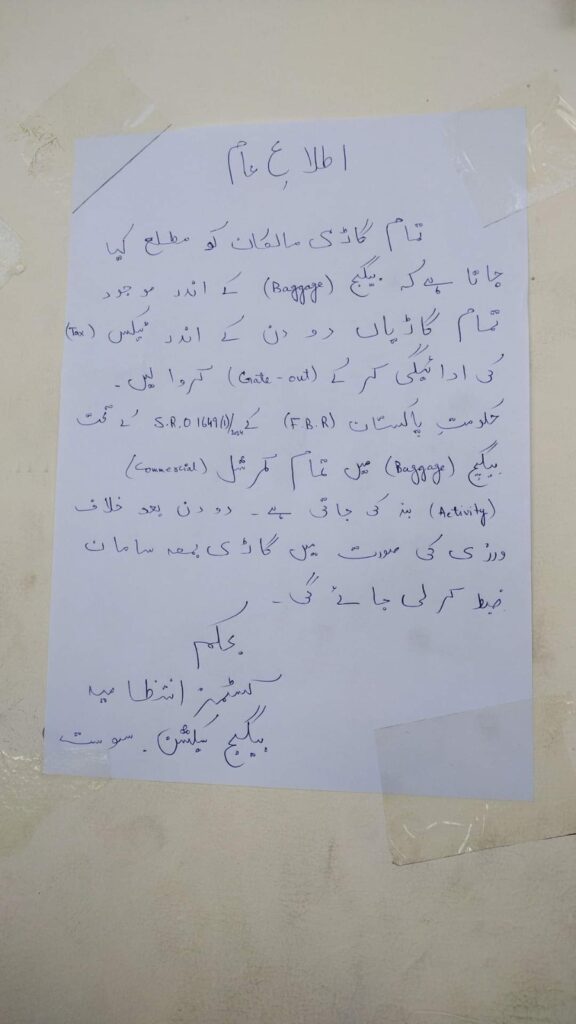GILGIT: Gilgit-Baltistan traders on Wednesday staged a protest at the Pakistan Customs Check post at Sost, Hunza as they went on strike against the imposition of a ban on baggage trade at the Khunjerab border by the Federal Board of Revenue (FBR).
“All vehicle owners are hereby notified that all vehicles within baggage must clear their taxes and gate out within two days. Under SRO 1649 issued by the Government of Pakistan (FBR), all commercial activity within baggage is prohibited. Any violation after two days will result in the seizure of the vehicle along with its goods,” a hand-written order issued by the Customs administration, Baggage Section, Sost in Urdu.

In the SRO 1649 (I)/2024, FBR in the exercise of its powers conferred by section 219 of the Customs Act, 1969 (IV of 1969) proposed an amendment to the Baggage Rules, 2006.
“The goods, brought in commercial quantity shall be confiscated by the adjudicating authority as defined in the Act,” reads the Statutory Regulatory Order (SRO).
The protesting traders have appealed to the government for immediate intervention, calling for an end to what they consider “oppressive” restrictions and demanding a reversal of the baggage vehicle ban. They argue that without consistent policies, local businesses will suffer long-term, potentially undermining the region’s economic stability.
Also read: Authorities recover 49 vehicles forcefully taken away by traders at Khunjerab border
“If smaller vehicles can’t pass, we won’t allow larger freight containers to cross either,” asserted one of the protestors, highlighting that the ban on baggage vehicles essentially freezes trade operations, with repercussions felt across the region.
It was not the first time that traders at Sost were protesting against the Customs. Protests have become a common sight in Sost, the last town of Hunza near the Pakistan-China border, with traders regularly voicing their concerns against the rapidly shifting rules enforced by customs authorities.
The protestors, including baggage traders, are vocal about what they describe as “injustices” by customs officials since the border reopened for trade in April of this year. According to the traders, the frequent policy changes and restrictions are creating uncertainty, disrupting livelihoods, and stifling the regional economy.
Earlier this year, they waged a battle against the collection of taxes at the border, arguing that Gilgit-Baltistan’s status as a disputed territory makes tax collection legally questionable. However, their case was dismissed by the Chief Court, which upheld customs’ right to impose taxes at Khunjerab.

